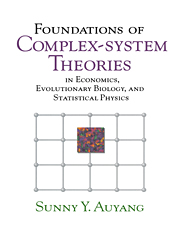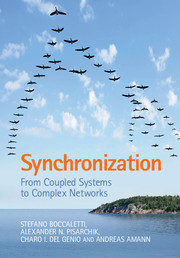Foundations of Complex-system Theories
Complex behavior can occur in any system made up of large numbers of interacting constituents, be they atoms in a solid, cells in a living organism, or consumers in a national economy. Analysis of this behavior often involves making important assumptions and approximations, the exact nature of which vary from subject to subject. Foundations of Complex-system Theories begins with a description of the general features of complexity and then examines a range of important concepts, such as theories of composite systems, collective phenomena, emergent properties, and stochastic processes. Each topic is discussed with reference to the fields of statistical physics, evolutionary biology, and economics, thereby highlighting recurrent themes in the study of complex systems. This detailed yet nontechnical book will appeal to anyone who wants to know more about complex systems and their behavior. It will also be of great interest to specialists studying complexity in the physical, biological, and social sciences.
- Complexity is a very hot field, and this book attempts to demystify it
- Written in a nontechnical level that is accessible to students of all fields
- The only book in which theories from the physical, biological, and social sciences are analyzed and compared in detail
Reviews & endorsements
"...gives a refreshing and general look at methods for studying complex systems." Journal of Statistical Physics
"This is a marvelous book....Auyang repeatedly points out how a rigorous examination of the nature of human knowledge reveals a collection of highly competent parts, which appear to be beyond integration or perhaps even beyond consistency." Mathematical Reviews
Product details
August 1999Paperback
9780521778268
420 pages
246 × 189 × 22 mm
0.75kg
Available
Table of Contents
- 1. Introduction
- Part I. Equilibrium:
- 2. Theories of composite systems
- 3. Individuals: systems and constituents
- 4. Situated individuals and the situation
- 5. Interacting individuals and collective phenomena
- 6. Macro individuals and emergent properties
- Part II. Dynamics:
- 7. The temporality of dynamical systems
- 8. The complexity of deterministic dynamics
- 9. Stochastic processes
- 10. Directionality, history, expectation
- 11. Epilogue.






